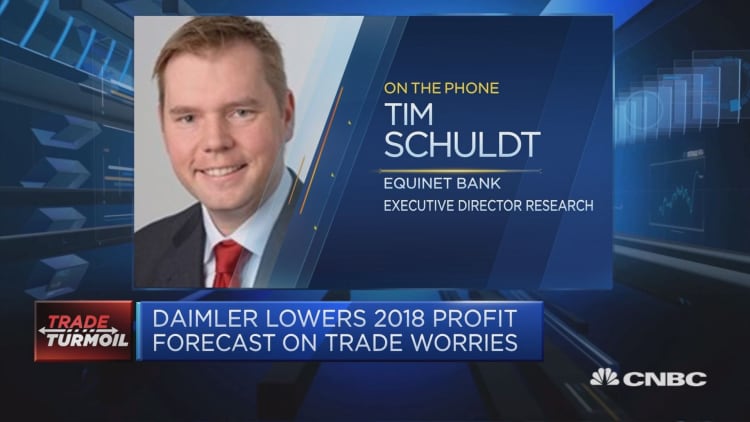German auto stocks were trading sharply lower Thursday after Daimler cut its 2018 earnings forecast, blaming global trade tensions.
Daimler said sales of its Mercedes-Benz SUVs would suffer from fresh tariffs on cars exported from the U.S. to China. Washington plans to levy tariffs of at least $50 billion on Chinese imports as a countermeasure to Beijing's alleged intellectual copyright theft.
The German group predicted earnings would now be slightly lower than last year's level, after previously predicting that profits would rise. Autos was easily the worst performing sector Thursday after the warning from Daimler, with German firms leading the losses.

The executive director of research at Equinet Bank, Tim Schuldt, told CNBC's "Street Signs" that Daimler could mitigate the tariff problem by selling some of these models in Europe until it could work out a long-term solution.
"They can then switch production to China, which is anyway ongoing. Over time, they will probably move all of their production there anyway" he said.
Schuldt said BMW could also suffer as it produced more cars in the United States than Daimler. He added that Volkswagen would be largely unaffected by the U.S. tariff plan, as the firm manufactured mainly in Europe and China.
In May, a German business magazine reported that President Donald Trump wanted to block German luxury carmakers from the U.S. market. The article, published in Wirtschaftswoche, claimed that Trump told French President Emmanuel Macron he would maintain his trade policy with the aim of stopping Mercedes-Benz models from driving down Fifth Avenue in New York.
Schuldt said Beijing would now likely encourage a number of European carmakers to move more production to China.


